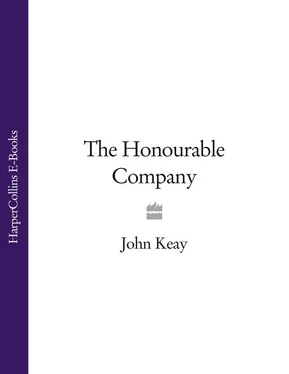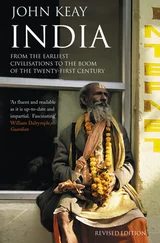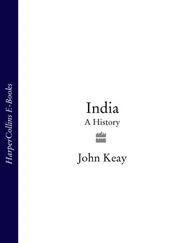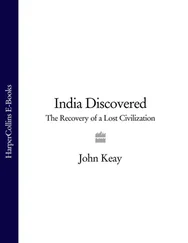I myself ranne after them, calling upon them as loud as I could to return backe and make good our house. But whiles I was thus speaking I was strooke upon the head downe to the grounde by one that came behinde mee.
Consciousness returned with the ‘extreame paine’ of having his hands tightly bound. He was immediately jerked to his feet and dragged off to prison. On the way he was robbed of all his money and of his three gold rings. ‘Then beganne they to put us in irons, myself with seven men being chained by the neckes all together.’ Eight of his men had been killed in the fighting, fourteen were badly wounded, and the remaining forty-eight were in chains. The only ray of hope was that a simultaneous assault on the ships had failed. But there too blood had been spilt and three Englishmen killed.
Why the Aga had so abruptly changed his tune was something of a mystery. In the interrogations that followed he accused the English of having broken a long-standing embargo against any Christian shipping calling at the pilgrim ports of the Red Sea. This was nonsense, although Islamic sensibilities could easily be aroused so near the sacred cities of Medina and Mecca and particularly so when, as now, fanaticism was heightened by the pangs of Ramadan. The Aga claimed to be acting on the orders of the Pasha at Sana’a; but the sight of Middleton and his men brazenly quaffing their madeira outside their house would have constituted a powerful provocation.
There was also, of course, the incentive of loot. To persuade Middleton to order the surrender of his shipping was now the Aga’s top priority. He tried bargaining – life and liberty for his captives in return for their ships’ cargoes – and he tried intimidation.
They stowed me all that day in a dirty dogge’s kennell under a paire of stairs…my lodging was upon the hard grounde, my pillow a stone, and my companions to keep me waking were griefe of heart and multitude of rats which, if I chanced to sleepe, would awake me with running over me.
For three weeks Sir Henry languished in his kennel daily expecting to be led away for execution. Instead he and all the rest were ordered up to Sana’a. ‘Our irons were knockt off our legges’ and a string of donkeys was provided for their conveyance. So was a guard of soldiers.
At Ta’iz, four days from Mocha, they were ‘marshalled into the citie two by two in a ranke as they doe at Stamboul with captives taken in the warres’. The townsfolk stood, stared and jeered and a sickly youth in Master Pemberton’s employ fell by the wayside. It was Christmas Day.
I kept no journal from this time forward [writes Middleton] but this I remember: we found it very colde all the way from Ta’iz to Sana’a, our lodging being the colde grounde covered with horie frost. In Sana’a we had ice a finger thicke in one night, which I could hardly have beleeved had I not seene it. I bought most of our men furred gowns to keep them from the colde; otherwise I think they would have starved.
They were fifteen days on the road and at Sana’a, ‘a citie somewhat bigger than Bristoll’, they were again paraded ignominiously through the streets. Then they were ‘clapt in waightie irons’ and consigned to prison.
The Pasha, like the Aga, claimed that he was only following orders. But it now emerged that the orders came from Istanbul and were in fact based on sound commercial considerations. In outbidding local merchants for the cargoes of Indian vessels reaching Mocha, the Ascension’s factors had unwittingly stirred up a hornets’ nest of resentment. From Mecca, Cairo and Damascus had come complaints about the consequent dearth of Indian goods; additionally Mocha had been deprived of its customary import duties. Not so long ago the Arabs and the Turks had seen the bulk of their transit trade in spices diverted round the Cape by the Portuguese; now the remaining trickle of spices plus the valuable trade in Indian cottons and indigo were being threatened on their own doorstep by the English. English trade in the Red Sea was clearly detrimental to that of Arabia and Egypt; the English must therefore be discouraged from ever again entering the region.
Middleton took the point. While still fuming over the treacherous manner in which he had been treated, he had no answer to the Pasha’s logic and agreed that English ships would in future steer clear of the area. The way was now open for negotiations over the release of the hostages. In these Middleton relied heavily on the intercession of other merchants, especially the powerful Indian community. The Gujaratis had welcomed the English as trading partners and were not without blame in dislocating Arabian trade. They were also fearful of English retribution – and with good reason.
For by the time Middleton and his men had been authorized to trail back to Mocha, it was March and the season for the arrival of shipping from India. April saw the port fill with dhows from Cambay, Surat and Dabhol, from the Malabar coast, Socotra, Sri Lanka and the Maldives. They were met by enormous camel caravans from Damascus, Suez and Mecca. This was the ancient exchange on which the prosperity of Arabia had subsisted and which the advent of English shipping threatened. There was no chance of Middleton being allowed to open shop but there was every chance that if the bullish Englishman were to regain his ships he would come amongst the dhows to wreak vengeance. The Aga therefore prevaricated over actually dismissing the English and saw to it that their commander was closely guarded.
On 11 May Middleton smuggled a note out to his fleet. The Turks were feasting their Indian guests, his guards were drunk, and ‘God had put into my head a devise.’ The ‘devise’ was a plan of escape. He instructed his men to saunter, ever so casually, to two pre-arranged embarkation points and await a boat. He himself climbed into an empty water butt; the butt was then sealed and floated out to sea. After what, even by seventeenth-century standards, must have been a cramped voyage, he was taken in tow by a tender from the English fleet, ‘which being done, I forced out the heade of the caske and came aboord’. His men fared less well, half of them being taken before they could be embarked’. But Middleton was free and once back on the heavily armed Trades Increase he gave his anger full rein. ‘I sent the Aga word that if he did not send me all my people with those provisions of the ships which he detained…I would fire the [Indian] ships in the road and do my best to batter the towne about his eares.’ To show he meant business he blockaded the port, interposing his own ships between the dhows and the shore.
The Aga ‘began to sing a new song’ – but at the same tempo; he was still playing for time. It was 28 May before all the English were released and 2 July before a final settlement was reached about the cargo. Middleton still hankered after revenge and for a whole month more he lay in wait for a richly laden vessel that was expected from Suez. Both the Pasha and the Aga supposedly had shares in her. ‘Yett she escaped us in the night.’ On 9 August, to catch the last of the westerly monsoon, Middleton ordered his ships to sail for Surat. The Aga must have breathed a long Turkish sigh of relief. It seemed reasonable to suppose that he had seen the last of the English and the last of Sir Henry Middleton.
In India Middleton’s appraisal of the English position was inevitably coloured by his recent experiences at Mocha. He had hoped to find a factory at Surat, Hawkins in high favour at Agra, and the Ascension’s factors manfully extending English trade. In the event he found no factory and no factors. His letters ashore were answered by a ship’s carpenter (the well named Nicholas Bangham who had absconded from the Hector in 1607) who reported that Jourdain and his followers were even now straggling back from Agra and that a disgraced Hawkins with his family were not far behind. Worse still, Middleton could not even get ashore to ascertain matters. A small armada of Portuguese frigates was blocking the mouth of the Tapti and both on land and sea Portuguese patrols lay in wait for his men. Under the circumstances trade seemed out of the question. Another rescue mission was the most he could hope to achieve. Accordingly he positioned his fleet alongside three Gujarati vessels that were anchored off the ‘bar’ and announced in a now familiar ultimatum that they ‘should not depart till I had all the Englishmen aboord of me’.
Читать дальше












